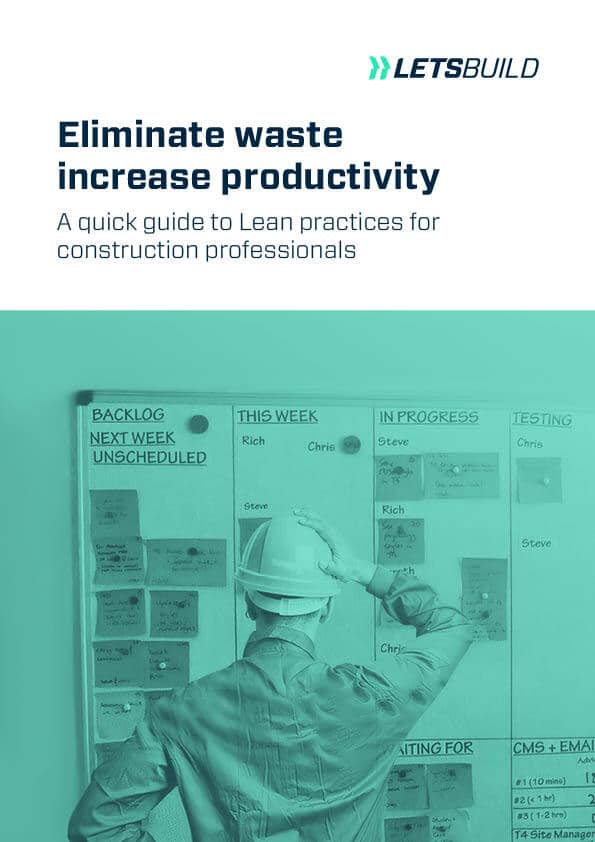As a manager, organiser or contractor of construction projects, there are a lot of roles that you have to fulfil, sometimes multiple roles per day. This can be a lot of information to absorb and it can be stressful and sometimes dangerous and counterproductive if you’re not on the ball and let certain considerations slip through the net.
Worse still, it could cost the success of the overall project! So you can be sure that you’ve got everything covered from start to finish and can be sure that your next or existing project is well done and successful.
[clickToTweet tweet=”These are the 5 golden rules for smooth construction project management” quote=”These are the 5 golden rules for smooth construction project management”]
Organise Your Plan
Of course, before any construction actually starts, you need to start by creating a plan of action. This needs to include everything from the employees you’re going to hire or sign for the project, where you’re going to get your supplies from, any legal aspects and, of course, planning permission.
“There is a lot of legal aspects that need to be considered, and you’ll need to work together with your team to make sure this all goes ahead smoothly and there’s enough time set aside so you can still complete the project by the deadline, leaving room for any obstacles that may come your way” shares Kevin Gathercole, a planning writer for State of Writing.
Consider everyone who will be involved, including architects, surveyors, solicitors, planning permission executives and councils.
Implement Staffing Rules & Roles
As a contractor, you probably already have a core workforce that works for you that will see out the main majority of the duration of your project. These roles will include people like joiners, electricians, general labour teams, bricklayers and the sorts.

To ensure that your project runs as smoothly as possible, it’s wise to start organising key dates and times where these teams will be brought onto your site and to list out exactly what roles and tasks they are going to be fulfilling. The first fix stage is considered one of the most important times to set these dates and roles.
Likewise, it’s important to remember that every project is different and will have a different set of rules that will need to be followed by these employees at all times, as not to compromise your project legally.
“When it comes to laying down these ground rules, such as safety working rules, respecting the surrounding area etc., it’s a good idea to list out these rules and then gather everybody that will be involved in the project at the same time. This will allow you to answer any questions and to make sure that everybody in that team is on the same page before the project begins” says Darren O’Brien, a project manager for EliteAssignmentHelp.
Organise Your Supply
The success of your project can also be solely determined by the quality of your supply chain, and you’ll need to take into account all aspects of the materials and tools you’re using before your project begins.
As a contractor, the chances are that you’ll already have connections to suppliers you have used in the past, but this will also depend on present availability and the location of your project, so you should never assume you can simply use a supplier that you’ve used before.

It’s so easy for projects to go over budget when it comes to supplies so make sure you have a firm supplier in place for the duration of your entire project, as well as a backup that’s readily available.
If possible, go for ecologically and financially stable suppliers that work in the local area to your project. Not only is this best for your credibility and reputation as a business, but also for your budget.
Safety is a Key Concern
Safety is one of the most important aspects of any construction project and could so easily cost your success. Every member of your team needs to follow this code of conduct for the duration of the project.

Not only is for the safety of the workers, but it’s also for the actual legislation of the building. If you skip corners with your construction, this is opening your project up to a whole new world of legal implications just as fines, or even causing an accident, which means you could go to court and face huge insurance procedures.
Be sure you plan all safety aspects of your project beforehand, making sure you have all the safety equipment and rules in place, that all employees are fully aware of before your project starts. You’ll always need to make sure that everybody’s safety training is up to date and that all hazardous materials, areas and machinery is properly signposted. It’s not worth risking saving the small amount of time it takes to set up these precautions for the risks that doing so carries.
Work as a Team
As a contract manager, it’s important to remember that you’ll be wearing many hats, such as the ones listed above. This means that you’ll be dealing with a lot of different people from a lot of different industries that will have a lot of different personalities.
Check out more: The 7 samurais of construction
This means you’ll need to be a team player and make sure that everybody gets on well with each other and all parties involved have clear lines of communication between one another. This is so important as solid teamwork is the only way you’ll be able to get everything done to a high standard and on time.
“When being a team player, you need to make sure that you’re not only a leader by being clear with employees underneath you, but you’re also giving these individuals the chance to get in contact with you so problems can be dealt with quickly and efficiently” shares Mike Derren, a team leader for UK Writings.
Conclusion
This nicely covers the main basics that you’ll need to learn as a contractor to make sure everything runs smoothly. With careful planning and openness between you and the rest of your team, you can be sure that everything comes into place and that your overall project, and every project, is a success.
Bio: Brenda Berg has over 15 years of experience in entrepreneurship, marketing and business management, a part-time educator and Editor in Chief at Oxessays. Consultant and tutor for college students and entrepreneurs. She believes that constant learning is the only way to success.




